The views expressed in our content reflect individual perspectives and do not represent the authoritative views of the Baha'i Faith.
What has happened to the ancient religions and spiritual belief systems of many of the tribal groups of North and South America? Have most of them been completely forgotten?
In this continuing conversation between Christopher Buck and Kevin Locke, we address that important question and explore the Baha’i teachings on the subject.
Q: Several times in this series, Kevin, we have talked about Abdu’l-Baha’s Tablet to Amir Khan:
In ancient times the people of America were, through their northern regions, close to Asia, that is, separated from Asia by a strait. For this reason, it hath been said that crossing had occurred. There are other signs which indicate communication.
As to places whose people were not informed of the appearance of Prophets, such people are excused. In the Qur’án it hath been revealed: “We will not chastise them if they had not been sent a Messenger.” [Qur’an 17:15]
Undoubtedly in those regions the Call of God must have been raised in ancient times, but it hath been forgotten now. – Abdu’l-Baha, Extract from a Tablet of Abdu’l-Baha.
So here’s my question about Abdu’l-Baha’s phrase, “but it hath been forgotten now.” Here, the “Call of God” refers to the sacred teachings of Indigenous messengers of God who appeared “in ancient times” among “the people of America.”
Would it be fair to say that these sacred, Indigenous traditions were largely “forgotten” because they were effaced and erased by cultural genocide, which wreaked havoc on all things Indigenous?
A: Yes, Chris, it was a forced “forgetting” imposed by the colonizing immigrant population.
One of my personal understandings of the portion of the Tablet to Amir Khan when, in reference to Indigenous messengers, it states “forgotten”, is that the Abdu’l-Baha was referring to the dominant society audience He was addressing. Here’s why: Firstly, the Algonquin and Iroquoian speaking people, who received the first Europeans, observed protocols invoking the laws of the Holy Ones and attempted to make known to the visitors the divine authority behind their hospitality. Secondly, by the time Abdu’l-Baha revealed this Tablet, there were many Indigenous spiritual revitalization movements inspired to bring awareness that the time of prophetic fulfillment was at hand. I have assumed that it was the dominant society people that had forgotten that which had been impressed upon them assiduously by their hosts.
I well recall the elders’ emphasis on the tantamount importance of the divine message of Ptehíŋčala Ska Wiŋ/White Buffalo Calf Woman, and how key it is to the core of my own Lakota identity. This, despite generations of suppression and enforced “forgetting.”
My uncle, who became a devout Christian toward the end of his life, often spoke of the prophecies of White Buffalo Calf Woman — and that they point to an imminent fulfillment he had not discovered in his lifetime of searching. So he encouraged me to persist in my quest — and never give up until I attained the goal. For me, he personalized the reality of White Buffalo Calf Woman and nurtured a great love for her and her teachings in my heart — a deep love that grows today through its realization in the Baha’i Faith, and in the person and teachings of Baha’u’llah as the “return” — or spiritual re-voicing — of the spiritual reality of White Buffalo Calf Woman and of her sacred teachings of harmony and the relatedness of all.
Q: Scorched-earth conquest — driven by the doctrine of “Manifest Destiny,” intensified by predatory commerce and greed, and exacerbated by religious and racial prejudice — played a huge role in this cultural genocide. For a quick overview, see this video from the Bureau of Indian Affairs (BIA), of Kevin Gover’s historic apology, “Never Again,” on the occasion of the BIA’s 175th anniversary on September 8, 2000.
Obviously, all this matters to Indigenous peoples. It’s a life-and-death issue, after all. Should this issue matter to Baha’is? Beyond recognizing and acknowledging this tragic historical legacy, how can the Baha’i teachings help point the way forward? What, if anything, can Baha’is do — whether individually or collectively — especially in the process of community-building and helping to reverse the devastating effects of cultural genocide?
A: There is a critical need for trained individuals skilled in raising up human resources, especially in targeted “reservoir” areas. Since Indigenous North Americans are the only non-urban based group remaining on this continent, reaching this population implies learning to live beyond the grid and, yes, even beyond internet/cell phone connectivity. This condition, of course, only applies to more geographically isolated groups. It came to mind because, yesterday, at a local pow wow, some urban relatives could only stay for a very short time because of the lack of amenities — number one being the lack of internet/cell phone service.
But I am convinced that once the sleeping giant that is the North American Indigenous population awakens, it will move the world. Much is required to foster the momentum. I invite any and all to join in this process so clearly prophesied by those blessed souls who raised the “Call of God” in these regions.
Q: During this forced “forgetting”—perpetrated by the colonizing and devastating conquests by Euro-Americans under the nefarious doctrine of Manifest Destiny — were some of the teachings of White Buffalo Woman forcibly “forgotten”?
A: Yes. One of the primary instruments for this “forced forgetting” was the boarding school system, in which entire generations were forcibly removed from their homes and subjected to a process whose stated aim was to “Kill the Indian, and save the man.”
In other words, beat out everything Indigenous and impose a Euro-American identity in its place. My mother, when pressed, would speak of the severe martial punishment she and her classmates received at the hands of the nuns. One in particular was especially brutal and pugilistic. Once, I asked her about that nun’s name. She began digging deep into her repressed memories … “Sister?? … Sister?? … oh yeah! Sister Rocky Marciano!” This was just a joke on my mom’s part referencing the famous boxer, America’s heavyweight champion in the mid-1950s.
Q: Not everything has been lost, though. Obviously some of the teachings of White Buffalo Woman are remembered, and are part and parcel of the sacred Lakota traditions that survive as a living tradition today. How should non-Indigenous Baha’is regard these teachings and spiritual practices, especially if they are the legacy of White Buffalo Calf Woman?
A: Recently I co-wrote an entire book on this important subject, Chris, called Arising. It tells the story of my own quest for meaning as a young Lakota man, and the way I first encountered the Baha’i Faith—and how its spiritual principles fit so perfectly with Lakota beliefs. This passage from the Baha’i writings explains how Baha’u’llah came to connect and unite all of the spiritual traditions — and enable us to discover the true nature and reality of all the previous holy messengers:
The Revelation, of which Baha’u’llah is the source and center, abrogates none of the religions that have preceded it, nor does it attempt, in the slightest degree, to distort their features or to belittle their value. It disclaims any intention of dwarfing any of the Prophets of the past, or of whittling down the eternal verity of their teachings. It can, in no wise, conflict with the spirit that animates their claims, nor does it seek to undermine the basis of any man’s allegiance to their cause. Its declared, its primary purpose is to enable every adherent of these Faiths to obtain a fuller understanding of the religion with which he stands identified, and to acquire a clearer apprehension of its purpose. It is neither eclectic in the presentation of its truths, nor arrogant in the affirmation of its claims. Its teachings revolve around the fundamental principle that religious truth is not absolute but relative, that Divine Revelation is progressive, not final. Unequivocally and without the least reservation it [the Baha’i Faith] proclaims all established religions to be divine in origin, identical in their aims, complementary in their functions, continuous in their purpose, indispensable in their value to mankind. – Shoghi Effendi, The World Order of Baha’u’llah, pp. 57–58.
Q: Excellent answer! In this remarkable passage, let me illustrate how this statement may apply to the Lakota sacred traditions, as being among “all established religions.” So, if we substitute “the Lakota sacred traditions” in place of “all established religions,” we get this result:
Unequivocally and without the least reservation it [the Baha’i Faith] proclaims [the Lakota sacred traditions] to be divine in origin, identical in their aims, complementary in their functions, continuous in their purpose, indispensable in their value to mankind.


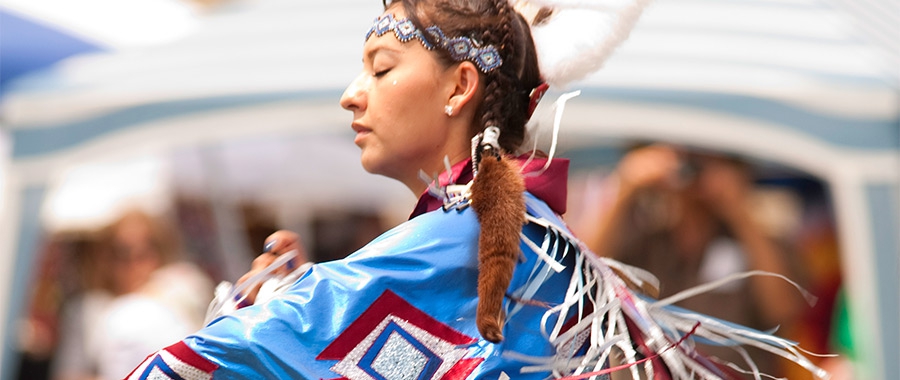
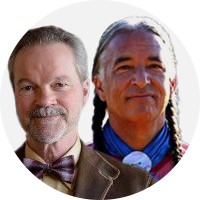
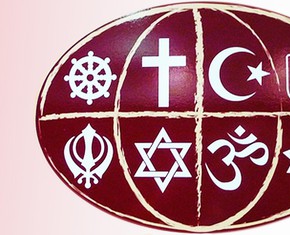
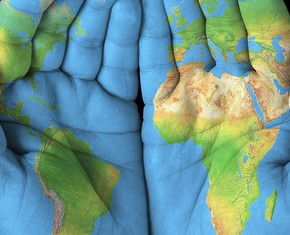

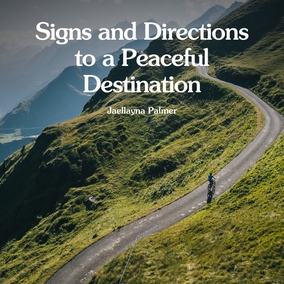
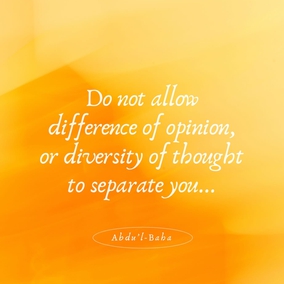
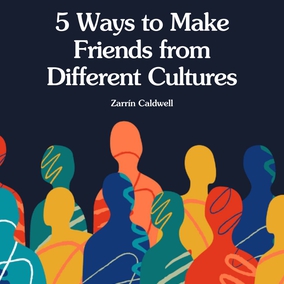
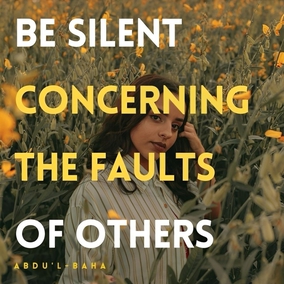





Comments
Sign in or create an account
Continue with Googleor